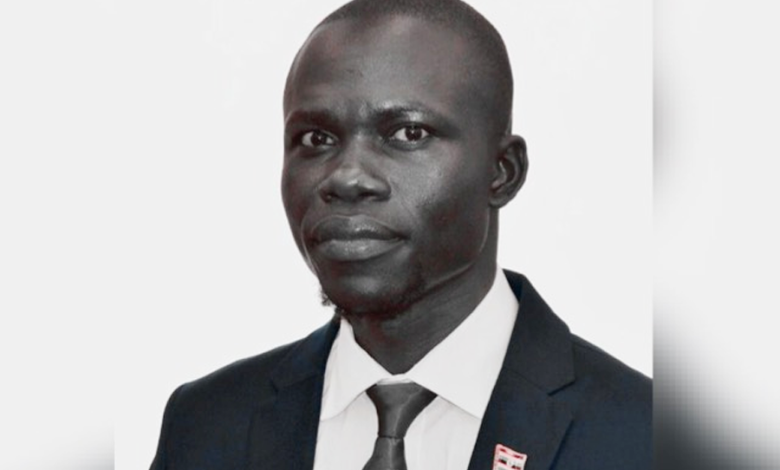Envisioning a New Uganda in 2026 by Creating a Locally-Owned Economy

Opinions
“If you want to get rich, build a road first.” – Chinese Proverb
Despite the rebranding of NRM manifestos such as Tackling the Tasks Ahead in 1996, Consolidating the Achievements in 2001, Prosperity for All in 2006, Prosperity for All; Better Service Delivery and Job Creation in 2011, Steady Progress in 2016, and Securing Your Future in 2021, Ugandans remain impoverished.
What then is required to establish a functioning economy that not only reflects on paper but also positively impacts people’s lives?
Should the foundation of a New Uganda be a people-owned economy, as it was prior to 1986? What crucial role do the financial, communication, and transport sectors play in establishing an economy under Ugandan control?
Foreign capital significantly dominates Uganda’s economy, favouring international investors by providing them with free land and holidays over domestic ones. This dependency resulted from the Structural Adjustment Policies (SAPs) implemented by the IMF and World Bank in the 1980s and 1990s, which required developing countries to liberalise their economies through privatisation to continue receiving loans from these institutions.
However, this has led to foreigners controlling Uganda’s economy, which has significant implications for Ugandans. For instance, every year, Uganda loses over billions of shillings in the financial sector due to profit repatriation by big banks, which not only affects the economy but also results in capital outflow.
Additionally, the cost of doing business is high due to the influence of leading financial institutions that determine the interest rates applied to local loans, with Uganda being among the top 10 African countries with the highest rates.
While the communication sector’s role is to improve information dissemination and market accessibility, which empowers local businesses, foreign telecom companies like MTN, Airtel, and Lycamobile dominate Uganda’s telecom sector. This also harms the country’s economy by repatriating an average of a trillion shillings in profits each year, as of the 2023 UCC report.
While economists and other scholars testify how important the transport sector is today in facilitating economic growth through trade, tourism, and connectivity across regions, Uganda’s transport sector has been crippled since the current regime took power in 1986, as witnessed by the fact that only 5,000 kilometres have been tarmacked.
This implies that Museveni’s government tarmacs about 131.5 kilometres a year. That is quite insufficient for a country that aspires to transform itself through infrastructure development.
Should I inform the Gen Zs that Uganda had a beautifully functioning transport system under the Dr Milton Obote and Idi Amin regimes, with excellent roads and railways? Should I inform young people that Uganda Airlines was one of the leading airlines in Africa?
In the transport sector today, foreign construction companies, particularly the Chinese, receive over 70 per cent of contracts. This also leads to inflated prices for road construction, and it is on record that the Kampala-Entebbe Expressway is the most expensive road in the world, costing a whopping $476 million, with a shocking cost of $9.2 million per kilometre—far above the average cost of $2 million per kilometre globally.
However, with such inflated costs, Uganda’s transport systems remain poor, especially the road network, where 13 people die every day in road accidents, according to the 2023 report of the Director of Traffic Police.
Taking lessons from the world’s leading economies, the US and China, the author recommends that New Uganda should prioritise rebuilding an economy with a focus on the financial, communication, and transport sectors as a blueprint for developing a locally driven economy.
How many countries have achieved economic development under foreign control? Without control over the financial institutions that supply credit to the economy, how can one develop?
Every economy relies heavily on the finance sector, yet Ugandans lack control over this sector. A New Uganda should have an interest in pursuing a public-private partnership in the finance sector because no country can develop where interest rates on loans are over 25 per cent, as is the case today.
Additionally, a New Uganda should implement a policy that mandates all Ugandans aged 4–45 years to have an account with the central bank or other state-owned banks. Since this is the only way the government can control credit, these financial institutions should receive 50 per cent of working-class salaries.
The revival of Uganda Telecom (UTL) should be a priority. Many economies rely on the internet to run their digital economies, but the current government’s internet restrictions and high internet costs hinder the growth of the digital economy. Envisioning a New Uganda through a locally driven economy should be the basis for reviving the lost glory of the Pearl of Africa.
Mr Richard Mbayo is a political scientist, realist, certified foot soldier, revolutionary, PhD student at Northern Arizona University, and an aspiring MP for Kabweri Constituency (2026).




